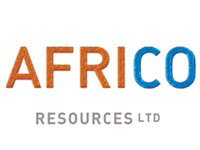
We undertake environmental and social permitting studies (ESIA) taking into consideration that our clients might require financial closure from International Financial Institutions (IFIs). Thus our reports are based not only to country legislations/local but also IFIs and Equator Principles (EP) but undertake bankable studies.
Being an African based institution, we add value to our clients by providing local content that otherwise international investor’s lack. Thus we not only help our clients in environmental permitting but also help them understand the local operating environment.
Our ESIA goes further than just permitting to ensuring that the management plans developed are implemented and monitored. This we do by developing Environmental and Social Management Systems that can be seen to be similar to accepted international frameworks for quality and environmental management systems, such as ISO 9001 and 14001.
Permitting Register
We also develop legal register on behalf of our clients to monitor compliance to Country’s permitting framework and update our clients on changes in legal framework as they arise.
Under this we have the following services:
• Environmental and Social Impact Assessment and Permitting
• Strategic Environmental Assessment
• Environmental and Social Management Systems
• Resettlement Planning
• ESM Implementation Monitoring
Case Study for Environmental and Social Impact Assessment and Permitting
Kesses Photovoltaic Solar Power Project Environmental and Social Impact Assessment Study
ESF Consultants completes ESIA study for the proposed 40 MW grid connected Solar Photovoltaic plant in Kesses Division of Uasin Gishu County Republic of Kenya by Kenya Solarfarms B.V. The study was undertaken to satisfy both the requirements of International Finance Corporation (IFC) and Kenya Environmental Management and Coordination Act (EMCA). This was the second assignment ESF was completing for the same client after successfully implementation of the first phase of 40MW solar photovoltaic project in the same region

ESF Consultants mining division helps mining industry players achieve sustainable mining in respective environment of their operations. ESF ensures that mining environmental and social footprint are minimized to ensure that environment of the area is managed well. Our experience in the mining sector includes one of the world’s largest deposit of copper and cobalt mining Democratic Republic of Congo.
Under this we have the following services:
• Environmental and Social Assessment
• Public participation and consultation
• Risk assessments, site assessments and contamination analysis
• Decommissioning rehabilitation and reclamation programs
• Environmental due diligence assessment of compliance with statutory requirements to determine existing and future liabilities associated with mine decommissioning and closure
• Monitoring and assessing the performance
• Assessing the socio-economic impacts of mine closure
• Conducting decommissioning audits to minimize waste and ensure safe disposal of hazardous materials during closure
• Designing Environmental Management Plan for mines
• Designing Social Responsibility Reporting for Mining companies
Our clients in the mining sector include:


Case Study for the Mining Sector
Social Impact Assessment Study for Kalukundi Copper-Cobalt Mining Project in DRC
ESF Consultants Limited was commissioned to undertake Social Impact Assessment of the proposed mining to assess the social impacts of developing the Kalakundi Copper and Cobalt Project. Social issues included all changes in the way that people live, work, play, relate to each other, organise to meet their needs and generally cope as members of society. Included among these changes are cultural impacts involving the values, norms and beliefs that guide social action.
More Case Studies
ESF has been helping our clients to get into new markets through community engagement and consultation. ESF strategy is to engage host communities, governments and nongovernmental organizations as stakeholders by empowering these communities through our study process. By empowering communities to understand the process of work we build their capacity to understand and appreciate the investments our clients bring to the community and best ways to scale it up without compromising the integrity of the community resources and wellbeing.
We achieve these through:
1. Baseline surveys to understand the communities structures, issues, among others
2. Risk Assessments
3. Identifying CSR programs
4. Community Needs Assessments
5. Stakeholder Engagement and Management
6. Corporate Social Responsibility
7. Local Content
We help our clients build strong, constructive, and responsive relationships with local communities that are essential for the successful management of a project's.
By engaging with stakeholders we mitigate the risks associated with poor stakeholder relations and the improve the opportunities provided by constructive ones.
Case StudyCase Study for Corporate Social Responsibility
ENI sustainability advisors in Kenya
ESF Consultants is supporting ENI work in Kenya by updating their legal register, and developing Corporate Social Responsibility investment program.

ESF understands there are cross cutting issues that comes into play when implementing projects. Some of these cross cutting issues are gender, climate change and human rights. Due to the complexity of these cross cutting issues, we support clients in identifying and managing them.
In climate change scenario, we help clients in developing adaptation measure to project’s vulnerability to climate change and its potential to increase the vulnerability of ecosystems and communities to climate change
Our services include:
• Climate Change and mitigation
• Gender Mainstreaming
Gender:
We understand that projects may have different impacts on women and men, due to their differentiated socioeconomic roles and their varying degrees of control over and access to assets, productive resources, and employment opportunities.
We help our clients assessing risks and impacts associated with gender and propose measures designed to ensure that one gender is not disadvantaged relative to the other in the context of the project.
Case StudyCase study for Climate Change and Mitigation
Advising World Bank funded Kenya Agricultural Carbon Finance on environmental and social assessment.
The Kenya Agricultural Carbon Finance Project targeted small scale farmers and aimed at improving their yields and farm productivity while at the same time generating carbon assets through payment for environmental services. ESF Consultants was involved in assessing the environmental and social impact assessment for the propose Sustainable Agricultural Land Management (SALM) practices